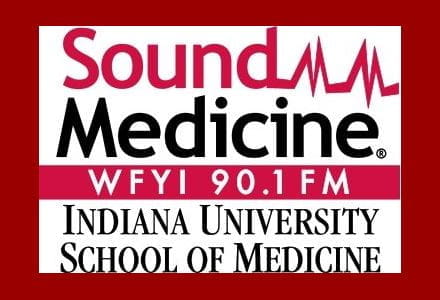INDIANAPOLIS — “Sound Medicine” announces its program for March 16, including segments about how a lack of sleep can cause health problems, new devices dentists can use to treat sleep apnea, and how exercise can improve overall health.
Can a lack of sleep cause health problems? According to the Division of Sleep Medicine at Harvard Medical School, a lack of sleep can contribute to a host of health problems including obesity, high blood pressure, mood disorders and impaired immune function. Ilene M. Rosen, M.D., program director for the University of Pennsylvania Sleep Fellowship, joins “Sound Medicine” to discuss the link between a lack of sleep and mental/physical problems, as well as why a lack of sleep causes these problems.
How are dentists treating sleep apnea? Sleep apnea is a condition involving disordered breathing that disrupts sleep. Sleep apnea has no cure, but there are currently 120 devices being used to help control symptoms. Steve Green, DDS, owner of Team Green Dentistry, discusses treating sleep apnea with oral devices and the SomnoDent MAS, a device that increases upper airway volume and reduces the risk of an airway collapse.
How can men ‘Refuel’ low testosterone? John La Puma, M.D., recently combined his talents as a health care provider and chef to write and publish “Refuel,” a lifestyle book for men that aims to refuel testosterone as well as increase strength and stamina. This week, Dr. La Puma discusses the effect low testosterone has on men and why it’s not as common as pharmaceutical ads would like you to believe.
How can doctors help reduce the financial burden for patients? Christopher Moriates, M.D., recently co-authored a paper in the Journal of American Medicine titled, “First Do No (Financial) Harm.” In his second “Sound Medicine” visit, Dr. Moriates elaborates on the doctor/patient financial relationship while also discussing the idea of a “universal” approach to health care costs.
What is ‘The Exercise Cure?’ Jordan Metzl, M.D., a sports medicine physician, recently authored “The Exercise Cure,” a new book dedicated to the benefits of exercise. According to Dr. Metzl, exercise is the “cure-all” or “magic pill” that people seek for preventing disease and improving sleep and over-all health. Dr. Metzl discusses why exercise is beneficial and how people can increase their daily amounts of exercise.
Can exercise improve balance? As part of the “Help Yourself” series, Sandy Roob investigates the effect strength training can have on balance. Whitney Wiley, a personal trainer at Butler University’s Health and Recreation Complex in Indianapolis, discusses strength training to improve balance and how it can be incorporated into everyday aerobic activities.
“Sound Medicine” covers controversial ethics topics, breakthrough research studies and the day-to-day application of recent advancements in medicine. It’s also available via podcast and Stitcher Radio for mobile phones and iPads and posts updates on Facebook and Twitter.
Co-produced by the IU School of Medicine and WFYI Public Radio (90.1 FM) and underwritten in part by Indiana University-Purdue University Indianapolis, “Sound Medicine” airs on the following Indiana public radio stations: WBSB (Anderson, 89.5 FM), WFIU (Bloomington, 103.7 FM; Columbus, 100.7 FM; Kokomo, 106.1 FM; Terre Haute, 95.1 FM), WNDY (Crawfordsville, 91.3 FM), WVPE (Elkhart/South Bend, 88.1 FM), WNIN (Evansville, 88.3 FM), WBOI (Fort Wayne, 89.1 FM), WFCI (Franklin, 89.5 FM), WBSH (Hagerstown/New Castle, 91.1 FM), WFYI (Indianapolis), WBSW (Marion, 90.9 FM), WBST (Muncie, 92.1 FM), WBSJ (Portland, 91.7 FM), WLPR (Lake County, 89.1 FM) and WBAA (West Lafayette, 101.3 FM).
“Sound Medicine” is also broadcast on these public radio stations across the country: KSKA (Anchorage, Alaska), KTNA (Talkeetna, Alaska), KUHB (Pribilof Islands, Alaska), KUAF (Fayetteville and Fort Smith, Ark.), KIDE (Hoopa Valley, Calif.), KRCC (Colorado Springs, Colo.), KEDM (Monroe, La.), WCMU (Mount Pleasant, Mich.), WCNY and WRVO-1 (Syracuse, N.Y.), KMHA (Four Bears, N.D.), WYSU (Youngstown, Ohio), KPOV (Bend, Ore.) and KEOS (College Station, Texas).
Please check local listings for broadcast dates and times.




